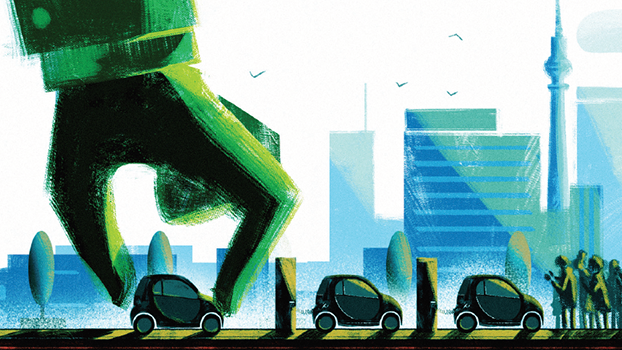
During its annual shareholders’ meeting in April 2019, Tesla’s Chief Executive Officer Elon Musk called those who refuse to purchase an electric vehicle “insane.” In the mind of the tech tycoon, buying self driving electric cars is not only a sound financial investment but also a veritable way to contribute to climate action.
His attitude reflects the growing industrial optimism about electric vehicles that many major European countries like Germany, UK, and France have even recently incentivized. The US, too, grants certain subsidies, rebates, and tax exemptions to EV users in a bid to entice consumers to shift to a greener mode of transportation than internal combustion engine vehicles, which are notorious for belching huge amounts of carbon dioxide. Policies like this offer an appeasement to the contradicting interests of the car industry and the public’s demand for climate action. The global production capacity for batteries that EVs use has consequently drawn level with this trend, amounting, in fact, to 316 gigawatt hours (GWh) in early this year—enough to generate electricity for Greenland, the world’s largest island.
However, in the Global South, where most of the raw materials needed for building these new and more efficient machines and devices are sourced, the rising demand for electric vehicles is threatening to worsen existing injustices in the extractive industry. It is thus imperative to examine what value chain production emerges from this trend. Amid discussions on electric vehicles as vital to climate solutions in the transport sector, it is crucial to situate the material footprint of the car industry against the promised decrease in carbon emissions by this shift.
Particularly, Indonesia is increasing its stakes in the resource-based market as a major player in the global supply of nickel, an important component of the batteries used for electric vehicles. It has rolled out a national plan for developing its domestic processing industry, which began by enforcing an export ban on raw minerals. For too long, indeed, the country has opened its reservoirs up to foreign businesses, to the detriment of its local industries which remain dwarfed by transnational capital. The export ban intended to prompt Indonesia-based mining firms to develop their own processing plants to refine nickel ores rather than ship off stockpiles of the mineral to major metal importers like China.
While this aspiration for self-reliance should ideally benefit the local population, what has so far been the case in Indonesia does not square with any goal other than profit accumulation by a few mining companies that have long held sway over the industry. The export ban benefited only those that had huge capital to begin with, including mostly Chinese-owned firms, to build smelters and additional plants in the country. This policy drastically attracted foreign direct investments in specially designated economic sites, one of which is the Indonesia Morowali Industrial Park (IMIP) in Central Sulawesi where most of these big mining business license holders operate.
The IMIP stands as an example of the Indonesian government’s disingenuous attempt at industrialization because of its reliance on foreign capital infusion. The park is a testament to the resurgence of China as an economic powerhouse with a ravenous appetite for cheap raw materials, new energy sources, reserves for foreign exchange, and ever more remunerative frontiers. Though unofficial as of yet, the IMIP would function to integrate Indonesia into China’s Belt and Road Initiative, arguably the modern world’s largest financial undertaking aimed at multilateral cooperation and supposedly sustainable development. This explains the inrush of investments into the region and the government’s acquiescence to an industry seen as a potential catalyst for economic growth.
Examining the value chain production of nickel in the IMIP, this study aimed to shed light on the various compromises dealt when such a project of global capital as electric vehicle production is put forward as both a climate solution and a driver for development. The findings, in particular, revealed how the local environment of Morowali and the residents ultimately stand at the losing end of this industrial development amid the disastrous consequences of resource extraction. Labor tensions in the park have also been documented and paint an ironic picture of overworked, low-wage workers deterred from protesting booming businesses.
An industry that only entrenches labor exploitation, economic injustices, and environmental degradation serves to undermine the socio-ecological transformation promised by a shift towards electric vehicles.